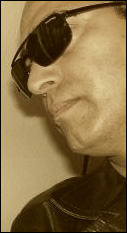 * The book's title, Book of the Book, reminds me of the Bible which is called Book of the Books in Spanish and other languages.
* The book's title, Book of the Book, reminds me of the Bible which is called Book of the Books in Spanish and other languages.
I understand you pointing out the association to the Bible, and it has most likely been a subconscious inspiration. I like reading The Old Testament, which I do not consider only as being a religious text, but I also see it as a form of imaginary, literary art and an expression of the common subconscious needs from the past.
* You have said once that the Book of the Book has provided you with many interesting experiences. Could you say more about that?
Yes. From the beginning, this book has been a source of enjoyment. A good illustration of this could be the following anecdote: An Indian poet, who lives here in this country, told me something, which made me think. This poet is a practitioner of Sufi-mysticism, which is a part of Islam that in certain aspects relates to Christian mysticism.
Anyhow, the mystic who founded Sufi-mysticism 800 years ago, began writing a book called Book of the Book. But the interesting part of this story is that the mystic never wrote a single line in that book. The reason for that was that he believed the book would be written and completed at one point in the future.
* And who knows? Maybe you have written the unwritten Book of the Book!
Well, it is rather a beautiful and inspiring thought. I consider it as an unbelievable coincidence, that I should in all modesty, 800 years after that incident, write a book of poems called Book of the Book. This Sufi-anecdote makes me inevitably think of the Argentinean author, Borges, and his thought of the eternal authorship and the eternal texts, which are waiting to be written.
* How is that?
Borges talks about the idea that an author can write a text, which already exists in some sort of an eternal, spiritual dimension. But that is not all, as he also believes that we all somehow contribute with our own life to an infinite telling. In this way every one of us is a page in this infinite telling. This telling, that is life itself or maybe even God makes everything move forward.
* God?
Yes...but not the militant God introduced by many religious prophets. They present us with a human like God, who overwhelms people with commands. It is a relentless God, who is ready to punish everyone for disobedience.
* So what kind of God do you introduce?
That is a good question. For the modern individual God is maybe more a big question rather than an answer. Personally I imagine God as a universal energy that runs through everything, or a God, which expresses itself in nature. I do believe that there is something that is God, but I do not believe the way God has been introduced in Judaism, Christianity or Islam. The established religions are a form of politics, and that is why I as a poet cannot commit myself into a specific religion.
* Why can a poet not be religious?
Naturally a poet can be religious, but it is totally different, when the poet tries to convince other people about his religious or political beliefs. When a poet tries to convince others what they should believe or what they should do, he is making propaganda and not poetry. It is impossible to be totally religious and an artist at the same time.
* Can you give an example of this?
For example, let's say: It is forbidden to lie. It is naturally always good to speak the truth, but the problem arises when a religious truth is conceived to be the only truth. A poet can easily write that he is bigger than the sun and the stars, that he feels as if he is God, and even that he is God. Or he can also write that the woman he loves is his God. All this is in deep conflict with the religious truths in Islam. Art has its own logic, where everything can be the truth.
Religion and politics are similar to each other in the way that they both try to repress or control art. That is why the countries ruled by strict political or religious regimes cannot produce good art. The pro-revolutionary Russian artists, especially the authors and poets, were more meaningful than those approved by the Soviet state. Accordingly a real poet can never be a politician or a priest.
By Ruben Palma
www.jamaljuma.com